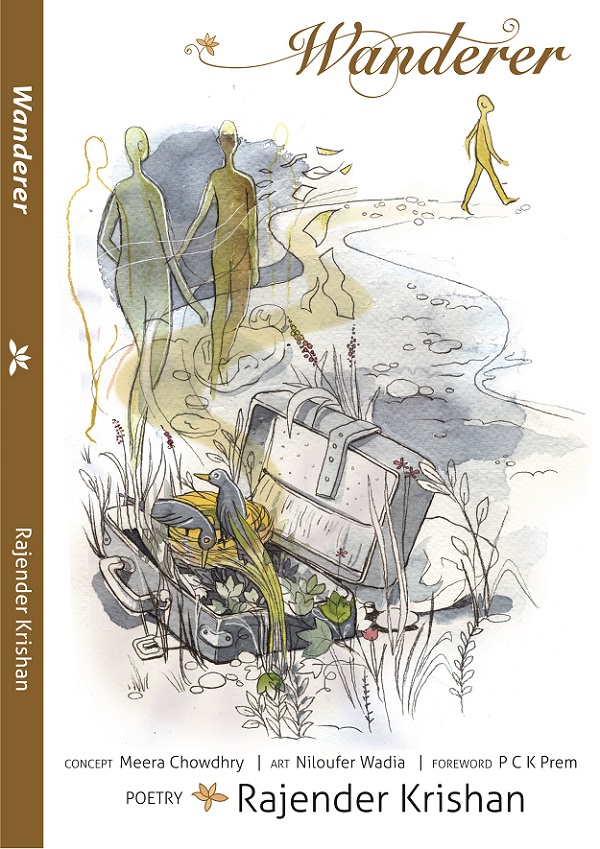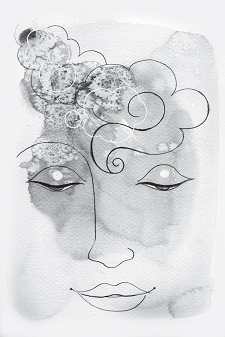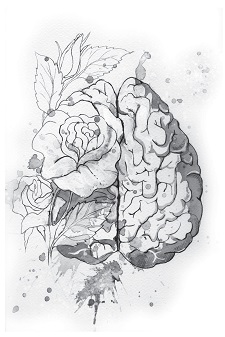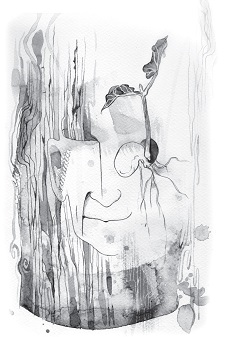Dec 13, 2025
Dec 13, 2025
 Wanderer by Rajender Krishan
Wanderer by Rajender Krishan
Paperback ISBN : 978-1-947403-15-4
Amazon ebook ASIN : B08T7VS8DZ
Available on Amazon USA | Amazon India
The 20th century began with a note of despair in English literature. The 1st WW, the Plague (1918-20), the Great Depression (19130) and the Second WW made the world a wastelandish ground. Much was lost in the turmoil, what was garnered broadly was technology – its telling effects on human affairs – relations, thought, faith, behavior, psyche etc. Today, nearly a century later, life seems to have gone beyond the boundaries of the post-modernist era, paving way for another discourse, another correlation and progression, in art and literature.
“Wanderer” is Rajender Krishan’s collection of 100 poems, and it takes the reader to realms the poet may not have intended. The intentional fallacy is palpable as the poet has a definite design, intention and projection. The poet’s credo is clear in his poem ‘Expression’:
Inducing the critic
to be the learner
and trace transient images
concealed within.
The idea of a critic as a learner is introduced here as post modernism had liberated a critic’s hegemony over the creative writer. The point is that as a critic explores, investigates and appreciates a poem, he is like a partner in the evolutionary process of critical assessment. Transient images indicate non transparency of images in poetry and that nothing is fixed, static or absolute in life and art.
The poems are predominantly written from an intellectual perspective. In a way, the poems deceptively turn the familiar unfamiliar. This is considered a virtue in poetry. Take the poem ‘Debate’ in which two renowned scholars discuss the fundamentals of life, with applause and the sound of claps, a sort of discourse is created. The poet observes:
The debate ended inconclusive.
However there was one observer,
paying total attention, not to the orators,
but to the words, and walked away content,
akin to the wandering mystic
with the discovery of an aphorism
The discussion that can follow, start as:
(1) What words did that one observer discover that he walked away content?
(2) Did the observer note that the entry of “Ego” turned ‘the discussion into an obtuse argument’ and walked away content after having determined the fact that ‘ego’ destroys?
Jim Morrison, an American singer, songwriter and poet, said: “If my poetry aims to achieve anything, it is to deliver people from the limited ways in which they see and feel.” [1]
Poet in his philosophical poem “Cipher” says:
Meditative mystic
Wants to remember
By unlearning
What was learnt
Here rings a bell in my memory of the saying of the historic Chinese philosopher and author, Lo Tzu:
To attain knowledge, add things everyday
To attain wisdom, remove things everyday [2]
 Thinking out of the box seems to be the need of the cutting-edge hour, which calls us to unlearn what we know and embrace newer thoughts and concepts to face the existing present and build our future. As Albert Einstein said, “We cannot solve our problems with the same thinking we used when we created them”. [3]
Thinking out of the box seems to be the need of the cutting-edge hour, which calls us to unlearn what we know and embrace newer thoughts and concepts to face the existing present and build our future. As Albert Einstein said, “We cannot solve our problems with the same thinking we used when we created them”. [3]
Some of the poems illustrate a psychological or a metaphysical postulate. Take this example from the Poem ‘View’:
That what is formless
Is yet the only eternal form
Searching which
The anxious wanderer
Walks with protruding eyes
While the formless rests within …
The above poem does not state anything new, nevertheless, it is a statement of philosophical and spiritual import. ‘Greed’ is another example of a statement poem:
Enough it certainly is
to take care of everyone
strangely it is not enough
for this crazy insatiable one
Poems invariably are thought based: For example, take the poem ‘Remembrance’:
One searches
what is lost
One tries to remember
what is forgottenBut how does one
even reminiscence about
the parent, who has
long been gone
and yet is a part
of one’s very own being
The ‘how’ in the poem is thought eliciting.
 Many of the poet’s poems are thought stimulating. Consider the poem ‘Ennui’:
Many of the poet’s poems are thought stimulating. Consider the poem ‘Ennui’:
On being questioned
If he was ever bored,
The wandering mystic
Referred to boredom
As a product of one’s
Incompetence to be calm
While being creatively
Engaged doing nothing
It is a stated fact that ‘doing nothing and boredom are closely intertwined’. Manfred F.R. Kets de Vries, distinguished Professor of Leadership Development & Organizational Change in his Faculty & Research working paper titled “Doing Nothing and Nothing to Do: The hidden value of empty time boredom’, says: ‘doing nothing and being bored can be invaluable to the creative process’. [4]
The readers will agree that if the mind is too full of mundane affairs and information overload and with the persistently continual desire to check emails and WhatsApp messages and Facebook posts, creativity is bound to take a back-step. For the brain to relax, the mind needs to be resting, and for the mind to be resting, it needs to be doing nothing. As doing nothing nurtures our imagination and sharpens our intellectual fitness.
We may say that an initiated reader of poetry is a discerning reader. No literary text is independent and autonomous, and author, text and readers are equal partners in decoding and understanding. It is the reader that brings words alive. We may refer to the poem ‘Discourse’:
Meeting a tense crowd
grief stricken and
emotionally disturbed
The wandering mystic
Gives a discourse on death
To explain the value of life
 It reminds of T.S. Eliot who famously said: ‘Genuine poetry can communicate before it is understood’ [6] and to illustrate this, I refer to the poem ‘Naissance’:
It reminds of T.S. Eliot who famously said: ‘Genuine poetry can communicate before it is understood’ [6] and to illustrate this, I refer to the poem ‘Naissance’:
Listening
in silence
the vibe rising,
echoes footsteps
of a giant oak,
directing focus
on a nascent sapling,
emerging calmly
yet resolutely,
from the soiled rocks
The glistening dew
moistens warmly
the ecstatic eyes of
an aging grandpa
on a morning stroll
The poet is well aware of the tools of poetry. The collection displays an adept use of figures of speech.
Poem ‘Karma”, a four-stanza poem is an apt example, having all four stanzas rhyming in abcb rhyme scheme. The first stanza reads as:
The Karmic principle
is indeed, candid, and blunt
Whichever way one deals
it rebounds with equal brunt
The poem ‘Strange’ has an alliterative line: ‘quoting quotable quotes’
We know well that good poetry owes its worth to the clearness of its context with reality displayed with appropriate images. To display reality and imagery in Rajender Krishan’s poems, I refer to the single-stanza poem ‘Disaster’.
Natural disaster strikes
several families perish
Survivors unable to wipe
tears dried on cheeks
The poet like a good artist records a calamitous event and has created a feeling of robust emotional rain in the survivors with ‘tears dried on cheeks’ suggesting that the survivors are indignant that assistance did not reach them in time, and they are still mourning and suffering emotional and physical agony. A poignant ending!
Let’s take another poem utilizing imagery, ‘Ants’
An ant in the pants
Shoe with a grain of sand
Naturally disrupts
The pace of progression
In an emotive state, the poet speaks with affection about the Labrador dog, and states:
Coby – our loveable Labrador
Is no more
I cannot help but notice
Moistness in my eyes
The poems have insightful quotable quotes that can be the genesis of compelling articles and which can have a tendency to leave an enduring effect on even an uninitiated reader. Some quotes have a dash of mystic mantra. A major achievement indeed:
Life offers achievable choices
to one who is true and sincere - CueBecome vigilant of every action
Watch the next step goes where - CandorWhen facing failure
ask yourself, if you are
satisfied with the intent
and the effort you have put in - Failure
The poems, in many ways are a unique blend of knowledge and wisdom. In our post-truth age, it is through language a poet visits and redefines his/her inherited value-systems and philosophies. This is how the poet in question uses poetic language to re-vision a worldview that came to him as a postmodernist legacy in times of the onslaught of globalization and technology.
Dream of a better future
Prepare for it without fear
Vision will aspire, will inspire
Whatever will be, it will be - ManagementTalk not of doctrines or morality
If practicing not, what you preach - SlyFear of loss breeds the habit of greed - Crux
And the five-stanza poem ‘Routines’ seems to be built on quotable-quote-stanzas:
Don’t think how far
the destination is
Think if you are
on the right path
Be productive
and not just active
Pointless work
breeds a chaotic lifeWhen life starts
appearing complex
Cease analysis
Start tackling itBeing worrisome
leads to wearisome
Habitual anxieties
breed miseryPrayers are answered
Only if you know
why to pray
how to pray
There are two kinds of poets: Those that write to find out what they feel, the other to tell us what they know. The poet falls in the latter class who instructs his readers to share and sum up the basic truths of life. Poetry to him comes as a source of inner awakening in the form of sutras:
Chose renunciation
to feel relaxed, instead of
getting agitated by denunciation - ContentmentOne ought to be
simply true, for
goodness to follow - FakeIt is never too late
to make a cleaner choice - ChoicesOne should learn and follow
Yam, the sutras of self-control - Dementia
The poet holds up the greatness of Indianess at a time when things are falling apart, and the center cannot hold. Poetry gives him a center, space, a concrete and breezy way. Poetry as a religious and philosophical rite affords him a language rather easy to comprehend, though hard to practice. The language of the poet implies and tells us about the man. In Rajender Krishan’s case though, those looking for magic in poetry may be disappointed. However, his poetry is not flat. To illustrate, refer to poem ‘Balance’:
Maintaining diverse fashion
Life mystifies with passion
Scales of equilibrium necessitate
The seesaw and swing oscillate
As is obvious, the poet catches a mood, a thought, an experience by enlarging it into a poetic image. The reader gets the feeling that he/she has understood the thought. Then it reverberates in the mind restoring the calm and poise making the reader realize that there is more to it than meets the eye. That is probably true of all real poetry – secular or spiritual.
Listed here are a few poems that this reviewer found remarkable: ‘Elementary’, ‘Fulfilment’, ‘Schooling’, ‘Learning’, ‘Mismatched’, ‘Encounters’, ‘Insight’, ‘Flawless’, ‘Whodunit’, ‘Wonderful’, ‘Naissance’, ‘The Maple Tree’. The poet is to be congratulated for his diction, syntax, economic expression and the poetic content.
Leonard Cohen a Canadian singer-songwriter, poet, and novelist made a statement, ‘Poetry is just evidence of life. If your life is burning well, poetry is just the ash’. [7] The poet has done a good job with his ‘ash’
As Louis Zukofsky, an American poet said, this reviewer will keep “Coming back to learn conveniently” from this book ‘Wanderer’.
I am reminded of Edith Sodergren, a Swedish-speaking Finnish poet’s philosophy of writing–‘I don’t create poetry, I create myself; for me my poems are a way to me’. [8]
In essence, post modernism in the Indian context, as a discourse, is an attitude of liberation. These poems emphatically illustrate that a poet is free to liberate his/herself from the constraints of the prescriptive norms of language and thought. In these poems, what is to be seen and appreciated is what lies at the center of the poem as we as Indians have our own cultural identity in life and culture. As an affirmation of our cultural identity , the poems are a part of post-modernist process in contemporary times, not as a historical process, but as a poetic manifesto. The poems create a serious responsibility for the reader/s to arrive at a harmonious state in life as is obvious in the poems. The poet visits tradition as change in literary taste is perpetual. The volume ‘Wanderer” signifies this welcome change – a departure from the mainstream post-colonial Indian English poetry. It is direct, communicates, aphoristic with solid meditative content. ‘Wanderer’ is a read-must for poets in the making.
Bibliography
06-Feb-2021
More by : Rajiv Khandelwal